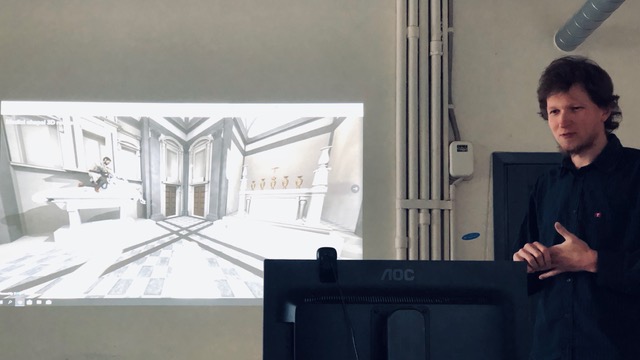
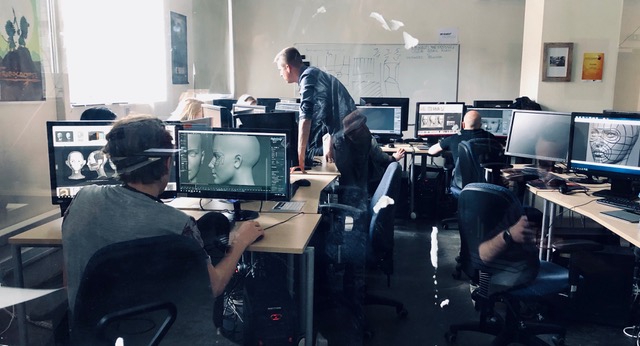

Enactive Virtuality Research Group, Tallinn University
Engagement related to professional activities, industry, companies, social, medical, education and entertainment related interest groups, application and commercialisation aspects of the research high-lighted



Department of Digital Learning Games, professor Martin Sillaots organised a visit hosted by Professor Anneli Kolk (image) and her team at the Department of Paediatrics at the Tartu University Hospital. Among other things they focus on developing the social perception and cognitive abilities of children with neurological damage, using touch screen and VR technologies.
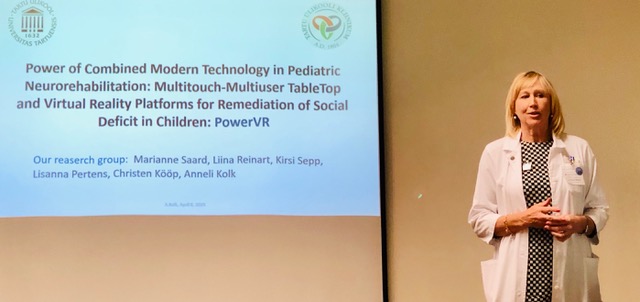
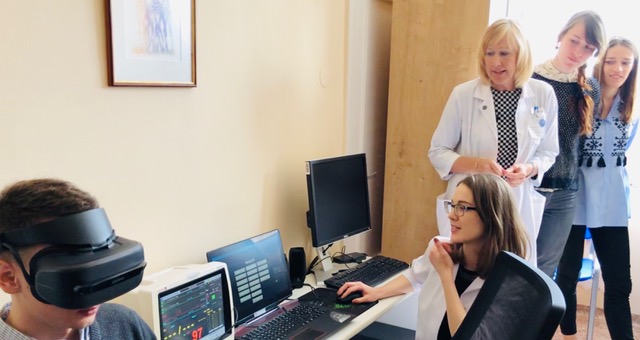
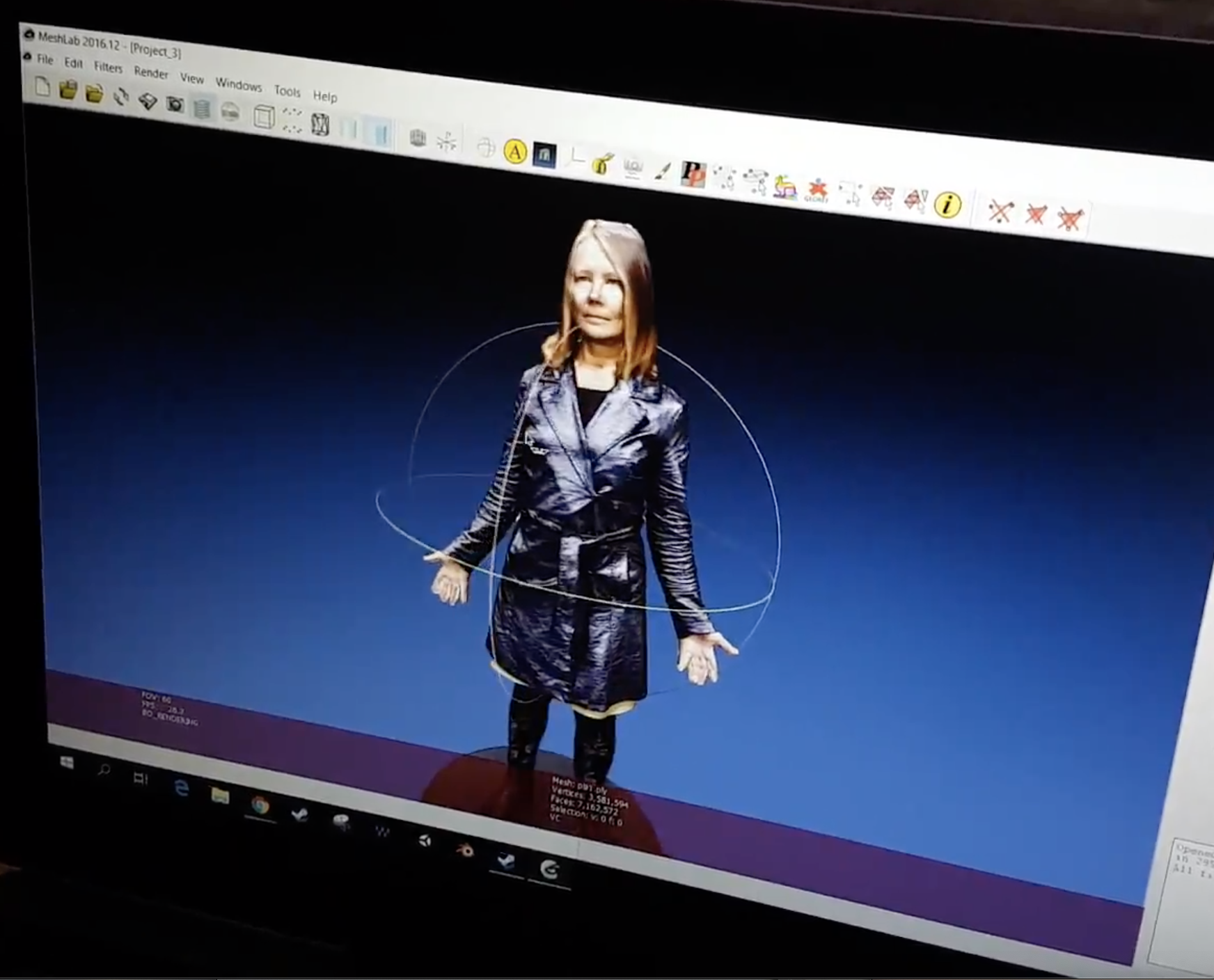

Hong Kong Virtual Reality Scene and Inno Hub facilities allow access to full body scans. Visit hosted by Samantha Goh and Sze Chianly (image below), founders of HKVR Network.
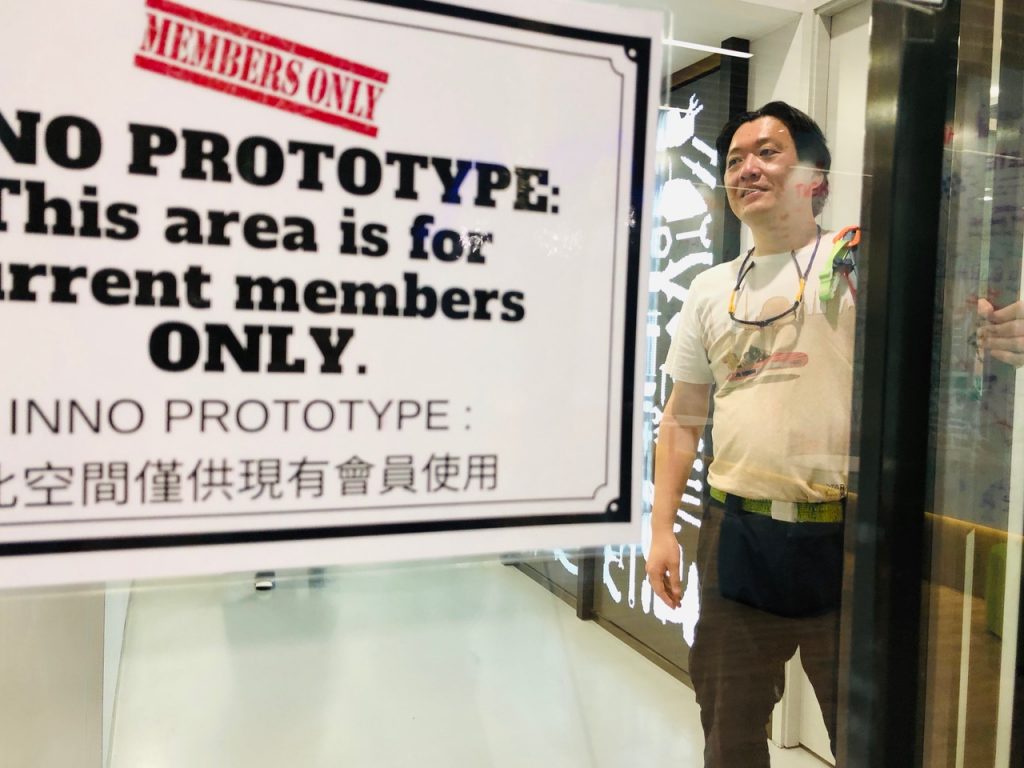
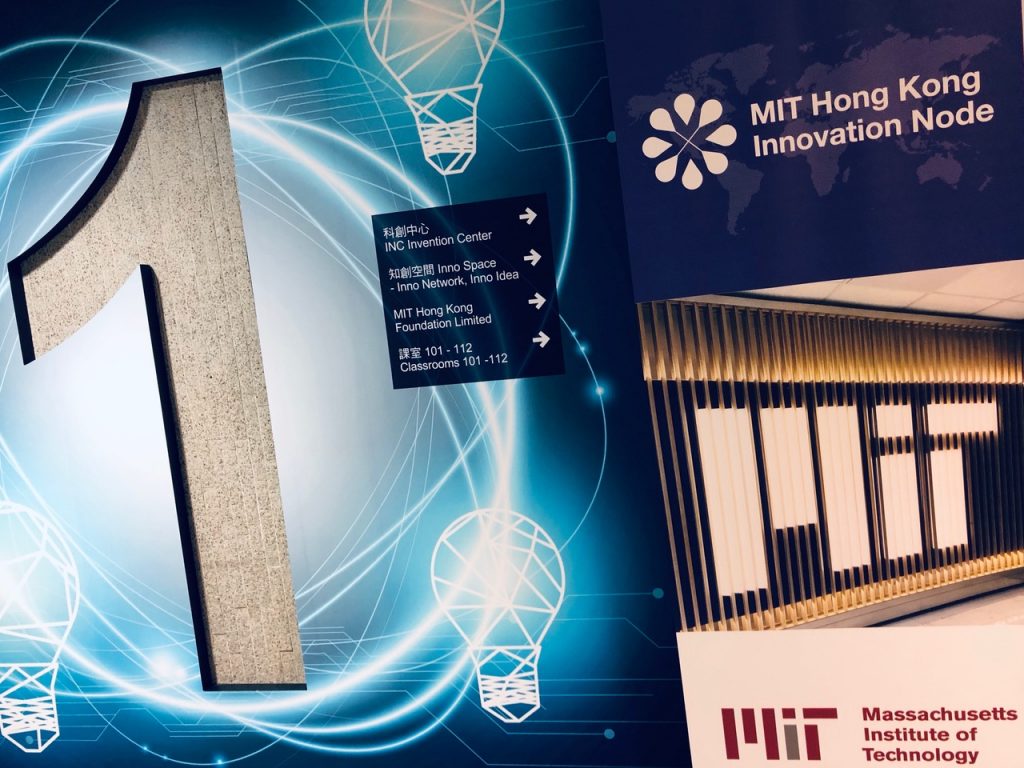
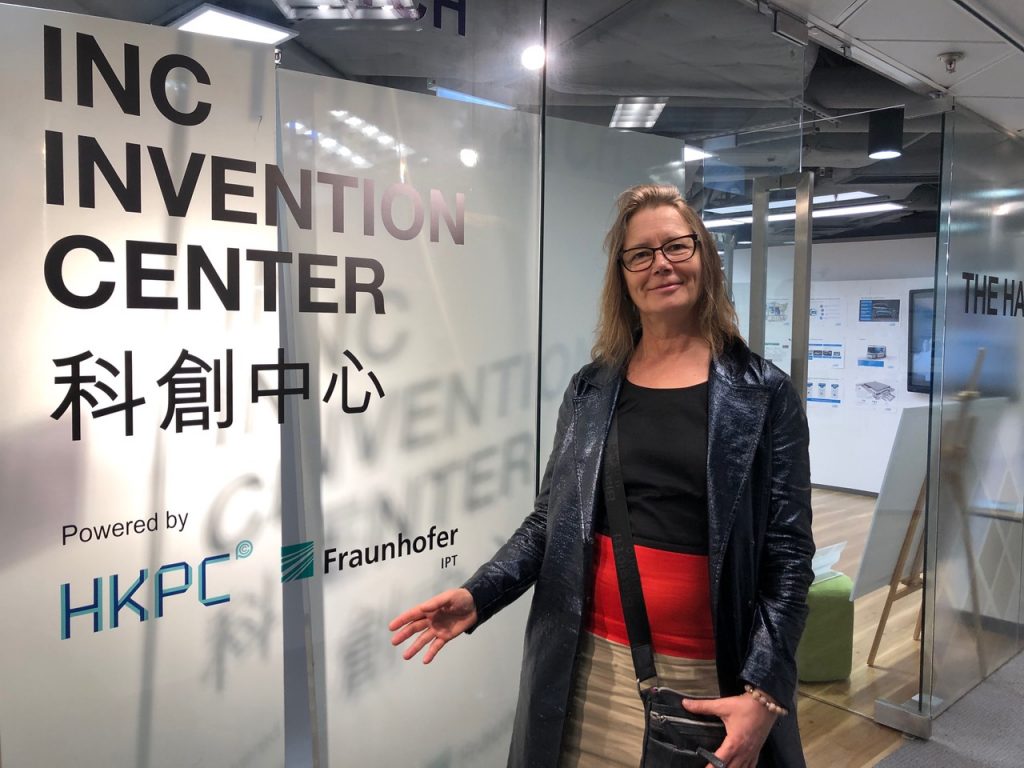
Image: Happy to find the presence of Enactive Virtuality Lab’s collaborators from Germany in Hong Kong.
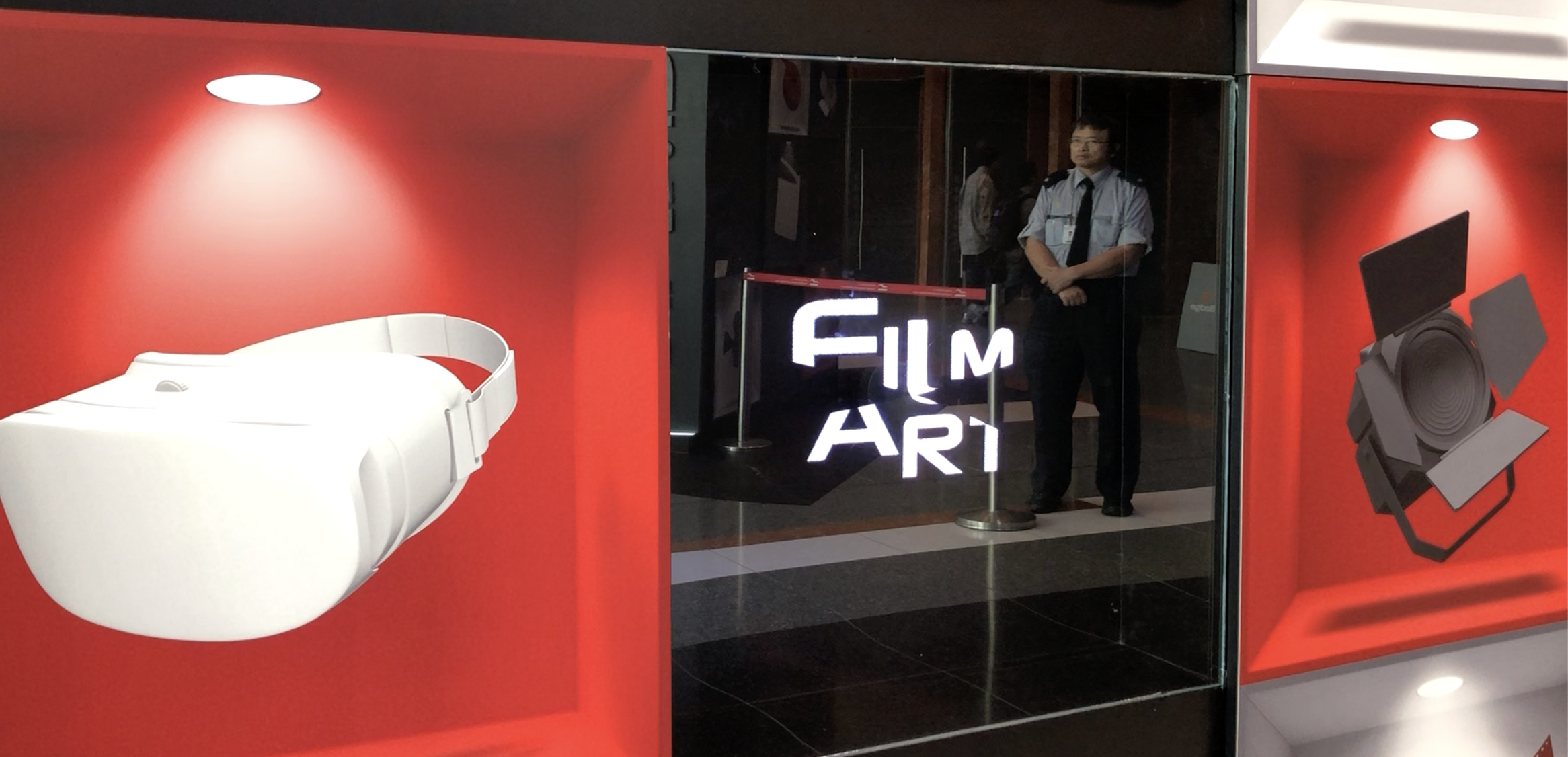
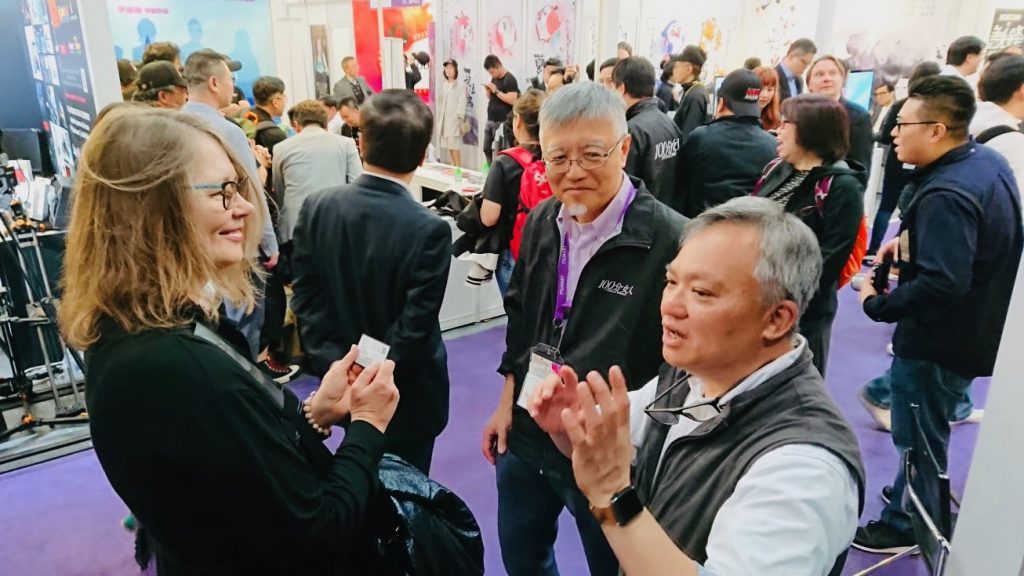
Visiting the Hong Kong FILMART booth of MANY VISION film production company. Executive Producer Stephen Ma (middle) and Johnny Ho, the founders of the Hong Kong Virtual Reality Network (HKVRN) together with my hosts Samantha Goh and Chianly Sze (HKVRN and Fatbars Ltd).
Photo by Chianly Sze
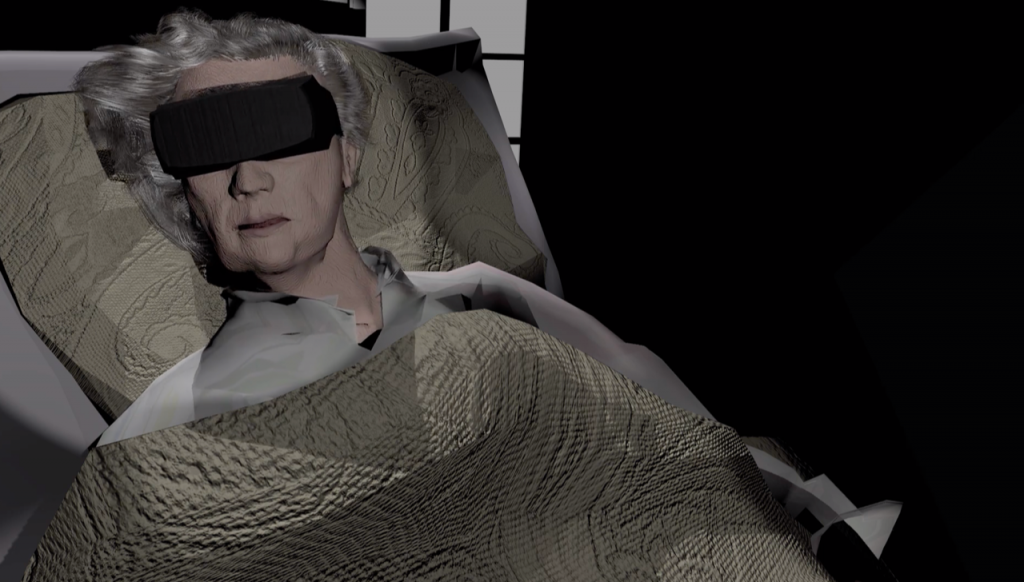
The very nature of the human species is social. Loneliness correlates with mental and physical ill-being within, for instance, the elderly, or people with disabilities, or other conditions causing reduced life-environment. Simultaneously, an increasing trend in the European lifestyle is to outsource taking care of such members of family, or in a broader scale, the society, into the hands of professional social and medical care. In the light of recent studies, loneliness can be considered a fatal condition. Loneliness reduces the ability to improve one’s life-conditions, motivation of taking care of one’s health, and affects negatively the functions of society, thereby indirectly also the European economy. As an indication of the urgency of the matter, UK has even appointed a Minister of Loneliness.
The issue dictates the need to figure out all plausible ways to fight loneliness. While human company must be the primary solution, other solutions must be considered to provide socio-emotional comfort to those who suffer of the lack of human accompaniment. An intriguing suggestion is whether technology in some form might contribute to relieve this sore issue.
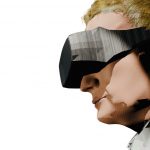
Work-in-progress: Enactive Virtuality Lab, BFM, TLU (MOBTT90) in collaboration with University of Tartu (UTARTU) Estonia, University of Barcelona (UB) Spain, Interdisciplinary Center Herzliya (IDC)Israel, Fraunhofer Heinrich Hertz Institute (HHI) Germany, Sense of Space Oy (SoS) Finland, Trotzkind GmbH (TRO) Germany and Tartu Linna Pensionäride Organisatsioon “Kodukotus” (TLPO) Estonia.
Image below: Skype group session during the project in development.
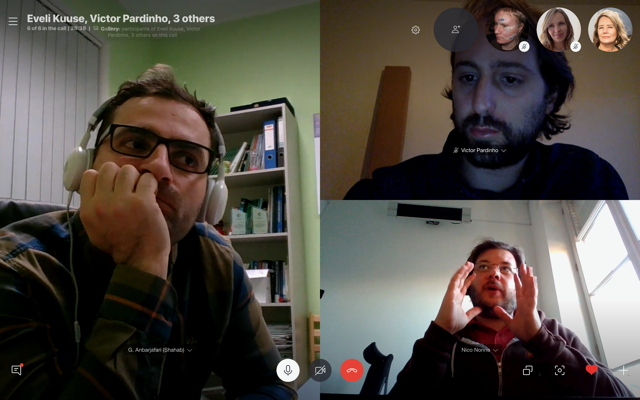
Video image: A conceptual 3D sketch of the shared experience between a bed-bound elderly and an enactive virtual accompaniment in VR immersive environment. The video depicts a first-person perspective to the co-presence when addressing loneliness by means of artificial accompaniment and virtual reality technologies. Against Loneliness: Sharing with Enactive Virtual Agent, MOBTT90. The 3D art work Eeva R Tikka, 2019.
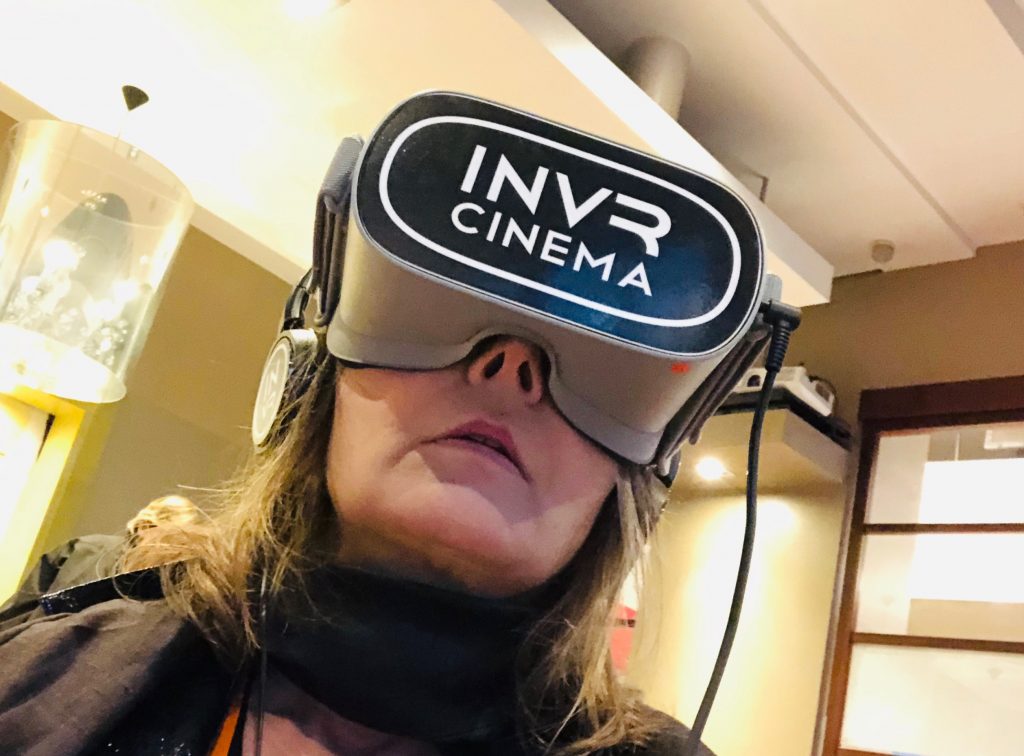
Meet Pia Tikka at the Berlinale 360° VR Screenings!
Join the talks and meet-ups with other VR professionals at the new screening venue “VR Cinema at Marriott”, which provides the ideal infrastructure to present VR content, thanks to our partner INVR.
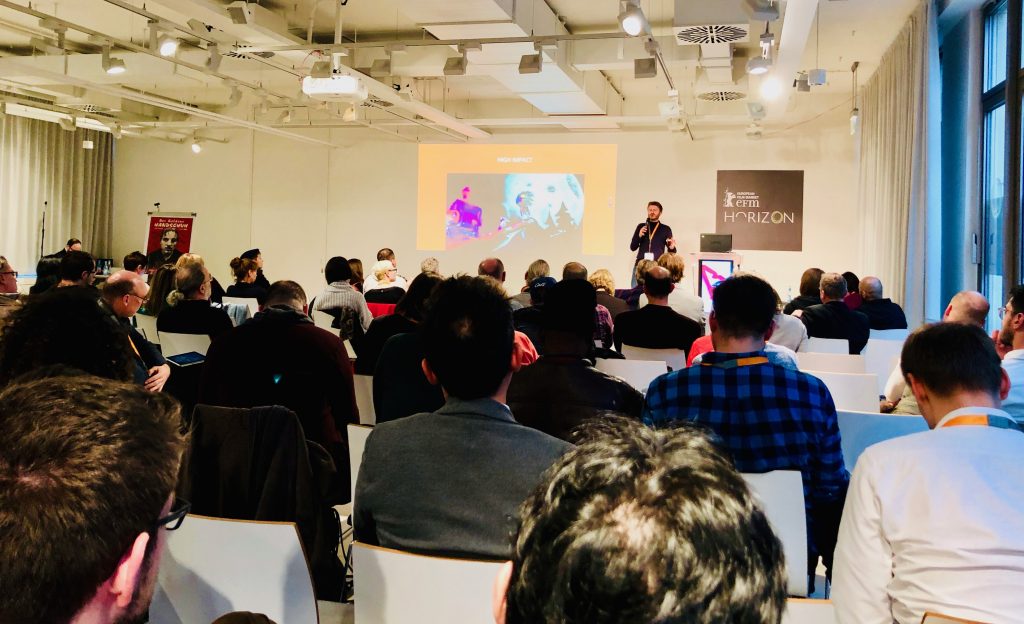
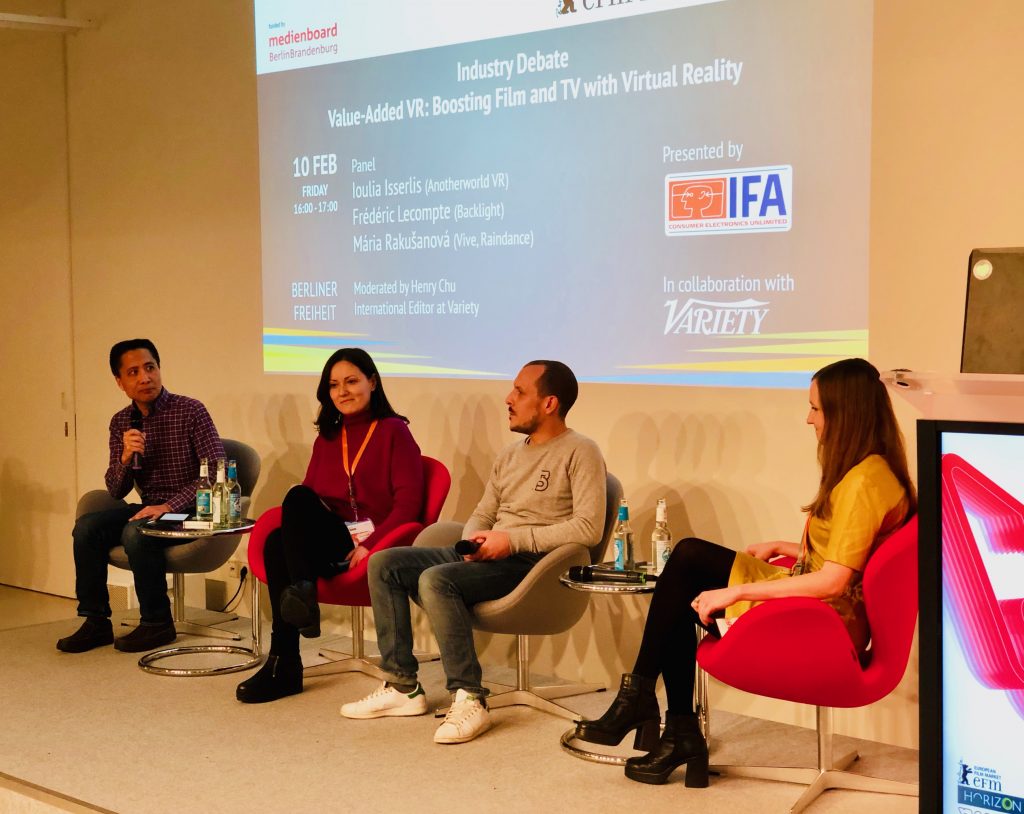
Screening Schedule & VR Library
Location: VR Cinema at Marriott
Opening hours: The cinema is open daily from 10 am-7 pm.
Experience all VR projects in the VR Library from the 12th to 13th February.

Enactive Virtuality Lab on excursion at the Medialab-Prado AVLab, a space for creative experimentation involving sound art, visual art and performance art based on open and collaborative processes. Its areas of activity are: experimental music, live audio and video processing, video games, media facades, performance art and live performances.
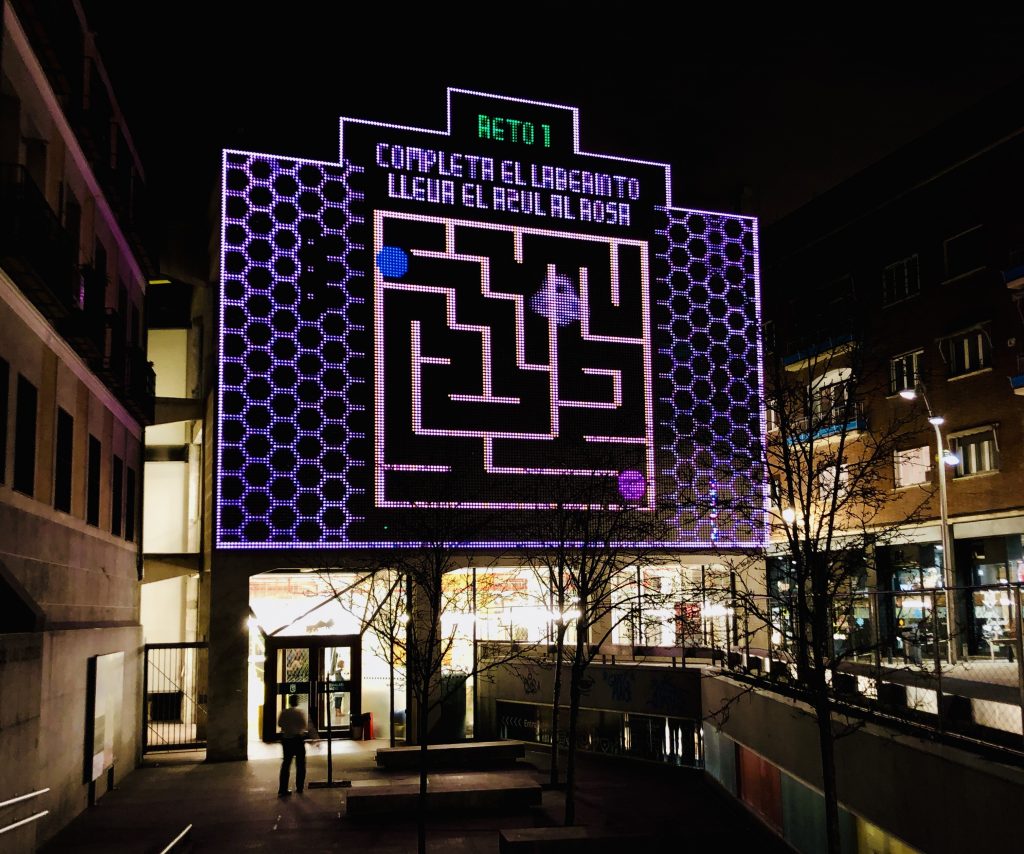

And participating in AVFLOSS meeting for project initiatives (above).
EmpaticaXR is a Transformative Technology and Evolutionary company translating cutting-edge neuropsychological knowledge into experiential narrative XR experiences aimed towards human flourishing. The researchers at EmpaticaXR are encoding concepts from the cognitive sciences, in combination with the emotional power of the cinematic narrative storytelling arts, to create the audiovisual transformative experience of wonder and awe that can only be massively spread through the power of XR, AI & Biometric Technologies.
Meeting with Alejandro Sacristán, EmpaticaXR Business Development & Operations, Madrid and Jorge Esteban Blein, VR Creative Director, and immersive storytelling consultant (in image).
Followed by a visit to the reactive professor Jose Maria de Poveda at empathic Reactive Media Lab (eRMLab)”, Universidad Autónoma de Madrid, UAM.
(In image at left Profesor Jesús Poveda de Agustin, in the middle professor Jose Maria de Poveda)
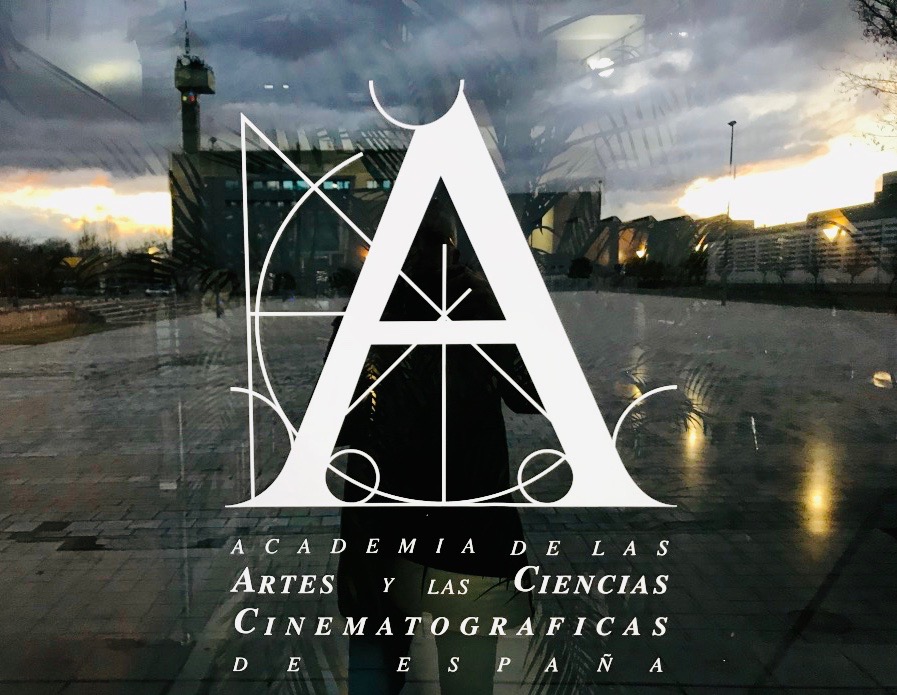
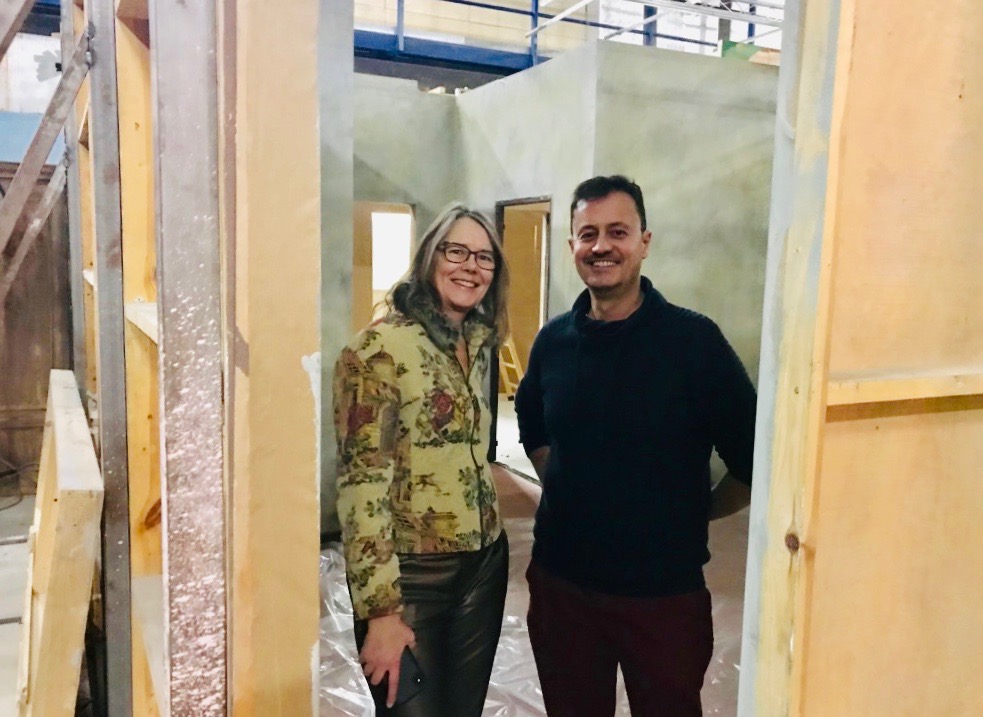

Visiting ECAM and Alain Lefebvre (in the middle image) to explore possibilities for collaboration, student and staff exchange, etc. as well as presenting VR/AR projects at the Enactive Virtuality Lab and Creative Lab/ MEDIT, BFM.
The chief editor Douglas Rosenberg is very excited to share the news:
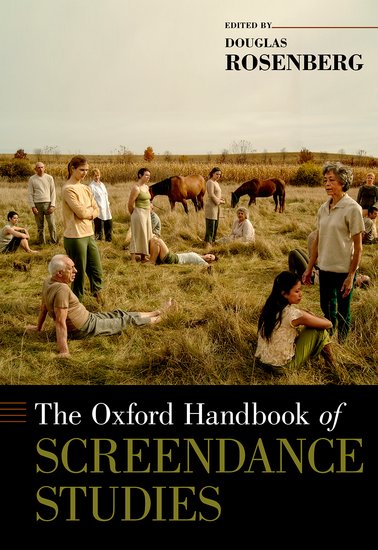
The Oxford Handbook of Screendance Studies has been awarded the 2018 Oscar G. Brockett Book Prize for Dance Research by The Dance Studies Association.
The following is the citation offered by the selection committee about the book:
The Oxford Handbook of Screendance Studies, which is skillfully edited by Douglas Rosenberg, features a gracefully comprehensive introduction and thirty-six impactful chapters from leading scholars who expand our understanding of screen technologies as creative, collaborative tools for dance. Both foundational and insightful, the essays focus on pioneering figures like Loie Fuller, Maya Deren, and Norman McLaren; on histories from Harlem and Hollywood to Brazil and Bollywood; and on themes that productively intertwine virtual bodies, framing, editing, space, race, gender, and politics. Authors from Dance Studies and related fields turn their gazes toward the way screendance can provide a liberating or controlled space, an ever-changing canvas, a democratic frontier, a site for social justice, new aesthetic pleasure, or a viral phenomenon with many meanings. Readable, rigorous, and thought-provoking, The Oxford Handbook of Screendance Studies engages popular, contemporary, traditional, and historical dance, offering wide-ranging new ways of understanding how ideas travel and can transform our lives through the “stage” of the screen.
The award will be conferred at the annual Dance Studies Association Conference at Northwestern University, August 8 – 11, 2019.
The Oxford Handbook of Screendance Studies is the first publication to offer a scholarly overview of the histories, practices, and critical and theoretical foundations of the rapidly changing landscape of screendance.
Pia Tikka & Mauri Kaipainen contributed with the chapter on “Screendance as Enactment in Maya Deren’s At Land: Enactive, Embodied, and Neurocinematic Considerations”